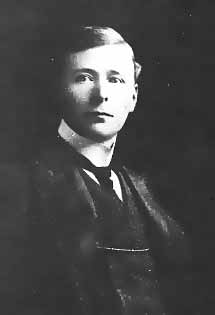Leslie Stuart
Unable to adapt to changing musical tastes, he was no longer in demand as a composer, although he had some success as a piano sketch artist in variety theatre.He was the younger son of Thomas Barrett, a cabinet-maker, and his wife, Mary Ann Burke, née Lester, who were both from western Ireland.[6] Singers included Zélie de Lussan, Marie Roze, Ben Davies, David Ffrangcon-Davies, Durward Lely and Charles Manners.[9] Stuart made a name in the 1890s by writing popular individual numbers that were interpolated into several West End and touring musicals by other composers.[sic] This had already been published and performed in music hall before being picked up by Ellaline Terriss and inserted, along with "The Little Mademoiselle", into the original production of The Shop Girl (1894), at the Gaiety Theatre.With traditional slow love ballads as well as waltzes and more rhythmic and playful concerted numbers, the score and show became a worldwide hit.[16] Stuart was an active campaigner for intellectual property rights and called for tighter laws on both national and international copyright.[17] The success of Stuart's shows led George Edwardes to hope that he would be able to replace the Caryll and Monckton writing partnership on their departure from the Gaiety Theatre.The Observer praised the performances of Terriss, Seymour Hicks and Ivy St Helier, but said that Stuart's music "had one striking and ingenious melody ... and two or three pretty tunes, and was adequate throughout without being remarkable.[2] By 1911, the lack of any new stage successes, coupled with gambling debts and the interest due on them, resulted in Stuart's appearance before the bankruptcy courts.[2] At the age of 48 he found that changing tastes in musical styles and the influence of modern dance rhythms meant his career as a composer was effectively over,[22] although he did write a number of songs that were inserted, against his principles, in the shows of other composers and a musical, Bubbles (1914), that was produced only in the provinces on a small scale.[28] In 2003 the critic Rodney Milnes called Stuart "the most gifted composer of musical comedy in Britain between Sullivan and Vivian Ellis".




Edwardian musical comedyFlorodoraManchestermusic hallblackfaceLily of LagunapantomimesSoldiers of the KingGeorge EdwardesGaiety TheatreDaly's TheatrevaudevilleThe School GirlThe Belle of MayfairHavanavariety theatreSouthportLancashireLiverpoolSt Francis Xavier's CollegeSalford CathedralChurch of the Holy NameFree Trade Hallcomic operasSullivanCelliergrand operasWallaceZélie de LussanMarie RozeBen DaviesDavid Ffrangcon-DaviesDurward LelyCharles MannersIgnacy Jan PaderewskiEugène YsaÿeEugene StrattonWest EndEllaline TerrissThe Shop GirlAn Artist's ModelBaron GoloshThe Circus GirlCarl KiefertThe YashmakEdison RecordsAda JonesOwen HallNeville CardusBrahmsMeistersingerintellectual propertycopyrightPhyllis DareGabrielle RayCaryllMoncktonThe ObserverSeymour HicksIvy St HelierBroadwayAndrew LambEmpire NewsMary "May"Richmond, SurreyRichmond CemeteryJames AgateRodney MilnesVivian Ellisbiographical filmYou Will RememberRobert MorleyJohn CassidyManchester Central LibraryLamb, AndrewOxford Dictionary of National BiographyGrove Music OnlineThe Manchester GuardianThe New York TimesThe TimesCardus, NevilleThe History PressAllMovieTraubner, RichardWikisourceInternet Broadway DatabaseFind a GraveDiscography of American Historical Recordings